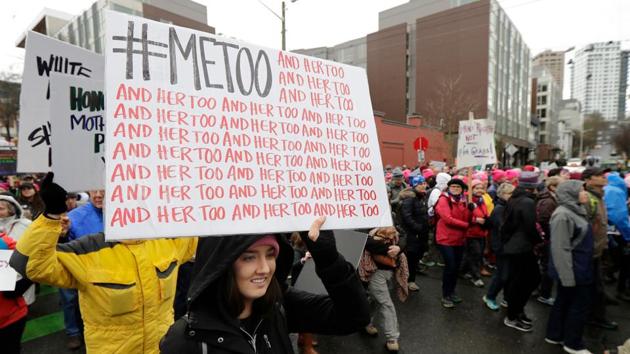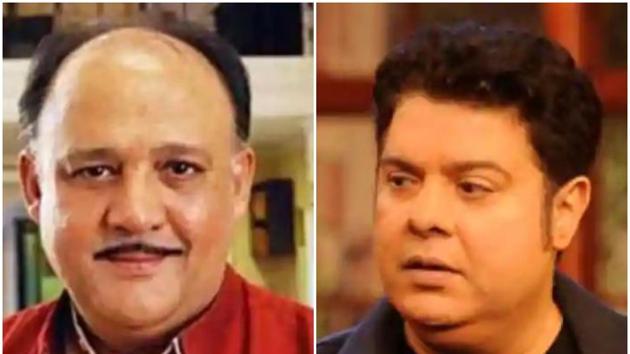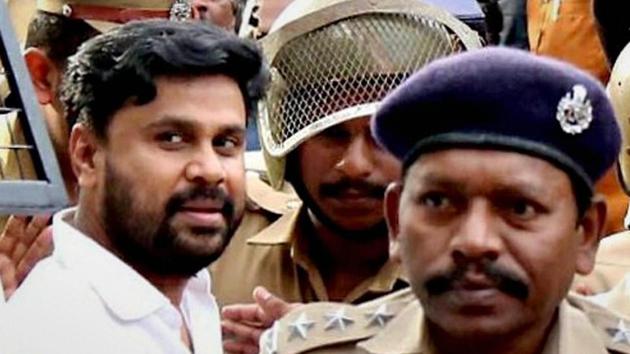| The Hema Committee report on the Malayalam film industry, released this week, is shocking in its account of the rampant sexual exploitation of women. At a time when the Kolkata rape has put the spotlight on working conditions for women, will this report have a larger impact? Read on… The big story Women@Work: The Malayalam film industry’s dirty, not-so-little, secret  Mahila Congress workers want the Pinarayi Vijayan-led Kerala government to take action on the Hema Committee report. PTI Nearly five years after Justice K Hema submitted her report on the working conditions for women in the Malayalam film industry to the Pinarayi Vijayan-led Kerala government, it has finally been made public. Through a two-year long examination of actors, directors, producers, cinematographers, script-writers, make-up artists, hairstylists, and costume designers, among others, the release of the report coincides with a renewed focus on workplace safety. The rape and murder of a 31-year-old doctor within the premises of the RG Kar hospital in Kolkata where she worked has caused national outrage and a suo motu hearing by the Supreme Court of India. The apex court has ordered the formation of a taskforce to look into workplace safety issues for medical professionals. The inability to provide safe working condition for women deprives them of equality in the workplace, Chief Justice Dhananjay Chandrachud pointed out. [Read more about the Supreme Court hearing here and here] The Hema Committee looks at another workplace—the Malayalam film industry and blows open an ugly picture of rampant sexual exploitation. Yes, the casting couch is real. Yes, it is routine to ask for sexual favours in exchange for work. Yes, refusal to comply or, worse, an attempt to break the silence can result in being banned from work. Yes, there is a powerful all-male ‘mafia’ that enforces these conditions. Yes, there is wage disparity between men and women. And, yes, even such basic facilities as toilets for women are missing. Despite the redactions, ostensibly to protect privacy, the report contains stomach-churning details of drunk actors banging on their co-star’s hotel room doors on outstation shoots. Of a strict law of omerta where even men cannot complain. And of workplaces so toxic that young women take their mothers and older relatives along to work just to feel safe. Women don’t speak up partly because they know it will be the end of their career and partly because there is no forum for redressal. Some are embarrassed because they are public figures who can be subjected to various forms of harassment including threats to life and online abuse. Others have not even shared the extent of their abuse with their own parents and friends, the report finds. [A PDF of the Hema Committee report is available to Bar&Bench subscribers here and LiveLaw subscribers here] The larger rot  HT File Nearly 16 years after the Supreme Court issued its famous Vishakha guidelines in 1997 to protect women from workplace sexual harassment, Parliament finally passed a law in 2013. Earlier this week, reports The Economic Times, India’s top companies recorded a 40.4% increase in the number of sexual harassment complaints filed in fiscal year 2024 compared to the previous year. This, according to the news report, is attributed to greater awareness of the law as well as a culture in some companies that encourages reporting of such cases. But in far too many workplaces, from the unorganised sector to media; from hospitals to domestic work; from factories to the film industry and even within the judiciary, workplace sexual abuse remains routine. The Hema Committee report is unprecedented because no other film industry in India has been put through a similar examination, though talk of the infamous “casting couch”, including in Bollywood, has been rampant for years.  Alok Nath and Sajid Khan were among those named in the 2018 MeToo movement. HT Photo The closest reckoning came during India’s 2018 #MeToo movement with accusations levelled against actors like Nana Patekar and Alok Nath as well as director Sajid Khan. But, in the end, police cases were closed and the accusations came to nothing. “We failed because twice the number of women as those who spoke up remained silent,” says Vinta Nanda, film-maker and writer and one of the main voices in the MeToo movement who accused Alok Nath of rape. Vinta says she has found it hard to get work within the industry and now edits an online publication, The Daily Eye. But, she says, what the Hema Committee report says about Malayalam film industry holds true for other film industries, including Bollywood. “The report can be extrapolated onto any other film industry,” she says. “The women are afraid to speak up because the consequences are dire.” Will the Hema Committee report have a ripple effect on other film industries? Much will depend on how the Kerala government, the same government that simply sat on the report for close to five years, chooses to respond. Its actions don’t encourage confidence. Chief minister Vijayan has now said legal proceedings will be initiated if the victims come forward. But what is stopping him from establishing a special investigation team, or from recognising sexual assault and asking state police to initiate legal proceedings? Putting the onus on the victims whose livelihoods are at stake, who were afraid to depose before the committee, and who in all likelihood lack confidence in a government that sat on the report for five years, is really expecting too much. Collective power  One day after his release on bail in October 2017, Dileep, one of the accused in the rape of an actress, was reinstated as president of the body of film exhibitors. PTI Headed by retired judge K Hema with two other members, actress T Sarada and retired IAS officer KB Valsalakumari, the Hema Committee was set up in 2017 after an actress was raped in a moving car in Kochi while returning home from work. The crime was filmed and, allegedly committed at the behest of Dileep, a leading film star, as some sort of perverse vengeance from the actress for a perceived wrong doing. The case is ongoing and Dileep, one of the accused, is out on bail. But the crime was so shocking that 18 women including actors, directors, producers and technicians came together to form the Women in Cinema Collective. “We felt the need to set up systems to ensure the security of women,” Bina Paul, a film editor and founding member of WCC had told me then. It was the WCC that demanded a task force to look into the working conditions for women in the film industry that led to the Hema Committee. It was the WCC again that filed a case in the high court asking for the sexual harassment law to be followed by the Malayalam film industry. The industry hemmed and hawed—how would you define workplace? How would the employer-employee relationship be defined—but in February 2022, award-winning film director Senna Hegde announced she was setting up a complaints committee for her film, 1744WA, the first Malayalam film to have such a committee. Again, in 2021, the WCC submitted a “cinema policy” document to the government. [I wrote about the WCC and its role in making the Malayalam film industry more compliant with the law in an earlier Mind the Gap here] “It’s been a tough fight,” Bina Paul told me on the phone after the report was released this week. Work has dried up because “we are seen as trouble-makers.” But, she adds, “On the whole, we are really happy that the report is out. I only hope that it will have an impact outside of Malayalam cinema.” |